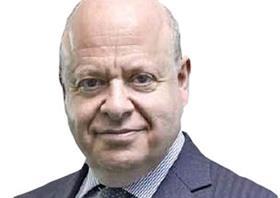A few days ago, a journalist asked me for information about disciplinary proceedings against lawyers in European jurisdictions. The response set me thinking about what huge information resources are available for use – but which are rarely used, because no-one knows they are there.
Such information resources should be pulled together into a single, well-publicised place: a global regulatory treasury. It is a scandal that they remain so scattered – a very minor scandal, not like Russian interference in Western elections, of course.

I will give examples from two of the areas on which I was working last week, disciplinary proceedings in response to the journalist, and continuing legal education. If neither of these is your main concern, there are plenty of others – professional indemnity insurance, for instance, or the future of legal services – where the same problem of hidden resources exists.
I referred the journalist to a trove of information gathered by the Council of Bars and Law Societies of Europe (CCBE) on how disciplinary proceedings are conducted in the various Member States, and who is responsible for them. The CCBE has also developed principles on the conduct of disciplinary hearings.
If the journalist had wanted to know about lawyer discipline outside Europe, I would have referred her to the International Bar Association’s (IBA) Legal Regulators Directory, which contains details of the organisations responsible in many jurisdictions for the three key stages of the lawyer life-cycle: admission, conduct and discipline, with contact information where possible.
The IBA has also just approved guidelines at its most recent Council meeting at the end of May on how regulatory authorities may exchange information about disciplinary sanctions against lawyers, for instance when lawyers cross borders and misbehave.
These data and guidelines are treasures of which very few people know. When lawyers or bars run into trouble, they then have no clue that there are existing resources to assist them. This gap also applies to bars in developing countries when trying to establish systems to deal with new areas, unaware of existing models. What a waste!
My second practical example comes from continuing legal education. There is a policy gap here on which the European institutions are becoming increasingly focused: the difficulties lawyers face in having continuing legal education obtained in one Member State recognised in another. For those working in this field, there is a huge amount of data available, of which again most people are unaware.
In March 2017, the European Parliament expressed concern that there were not ‘simpler and faster procedures for the recognition of professional qualifications and of continuous professional development requirements needed by qualified professionals planning to work in another Member State’.
The European Commission has identified this as one of the most pressing needs in the cross-border training of lawyers, and will shortly launch a funding call for projects which will focus, among other topics, on ‘preparatory work that will facilitate more recognition of foreign training activities to fulfil training obligations for lawyers (e.g. analysis of gaps of current recognition practice and development of a system to close them)’.
Earlier this year, 40 EU bars and law societies signed a memorandum on mutual recognition of lawyers’ cross border continuing professional development. The aim is ‘to promote and facilitate the free movement of lawyers within CCBE member countries where Continuing Professional Development (CPD) is mandatory or recommended and to allow greater flexibility for members’.
The memorandum covers two essential principles:
- The number of CPD hours or credits obtained in another Member State by a lawyer enrolled in a Bar or Law Society there should be considered by the lawyer’s home jurisdiction towards fulfilling the lawyer’s home CPD obligations; and
- The provider organising the training event should, on request, deliver an attestation, to allow the lawyer to request that the relevant hours or credits be recognised by the competent home authority
I am pleased to tell you that the Law Society and Bar Council were among the signatories. But do solicitors know that? And, if not, how will they find out?
The European institutions are hoping that a more comprehensive template for the recognition of cross-border lawyers’ training will be developed.
If you want to know more about the continuing education regimes around Europe, the CCBE has gathered the necessary data.
To return to my opening theme, all this useful lawyer information – local, regional and international – should be gathered somewhere. But where?
The IBA would be an obvious place. But, as an indication of its leadership’s interests, I see that of the 12 tweets or retweets since the disciplinary resolution was passed and at the time of writing, 5 were on torture, 3 on its forthcoming annual conference – and none on lawyer discipline.
Someone somewhere must centralise this information.































No comments yet